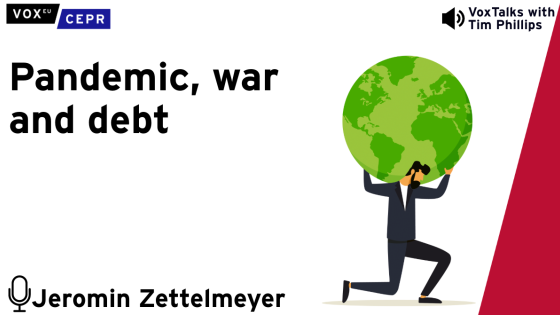As the global financial crisis deepens, so high-level attempts to contain its fallout intensify, and consequently interest in the London Summit, convened by British Prime Minister Gordon Brown for April 2nd, 2009, is very high. The agenda is extensive and potentially far-reaching, albeit opaque to those not directly involved in international financial markets as either participants or regulators.
The entire African continent, with the exceptions of South Africa which is a G20 Finance member and the chairs of the New Partnership for Africa’s Development and the African Union Commission, is not represented at what could amount to the most critical economic governance forum for the next few decades. Yet the gathering economic crisis has major economic implications for African countries, some of which have just escaped from decades of macroeconomic dislocations characterised by chronic indebtedness to foreign lenders. The successful reformers in particular now find themselves staring back into the abyss through no fault of their own.
The impacts on Africa really depend on the course of the crisis in developed countries, especially the US, and the time it takes to unwind the financial sector’s liabilities. The crisis has morphed from developed country financial systems into emerging market sovereign debt predicaments associated with an historic collapse in world trade. Emerging markets growth drivers have evaporated, dispelling hopeful notions that “decoupling” had occurred. Impacts on Africa specifically can be traced through, inter alia three channels:
- Direct financial contagion, specifically capital flight from emerging markets including trade finance; and associated macroeconomic dislocations (weakened exchange rates; increased domestic interest rates and increased debt payments). Increased inflows of official development assistance will not be forthcoming since many developed countries are scrabbling to recapitalise banking systems and provide domestic fiscal shock therapy. Decreasing inflows of private capital compound the problem. Therefore, already vulnerable fiscal revenues are likely to come under great stress in many African countries.
- Reduced remittances from African diasporas resident in the developed world. In recent decades these financial inflows have alternately cushioned the ill-effects of macroeconomic mismanagement or underpinned positive structural transformation stories. This will exacerbate foreign exchange shortages, dampen domestic growth prospects through reduced consumption, and heighten revenue pressures.
- Reduced prices and volumes of major commodity exports. This will reduce economic growth across the continent, although some countries will benefit from lower commodity prices and hence less pressure to raise interest rates to curtail inflation. Furthermore, the dramatic trade declines taking place across the world could impact severely on many African countries which rely on import taxes (tariffs) to sustain government revenues.
Broader impacts depend on the country in question’s balance of payments position, foreign exchange reserves, and fiscal position. In relation to these criteria the African situation is problematic (Kamara 2009).1 Furthermore, as developed countries, especially the US, take measures to rebalance their economic growth through reducing consumption in order to increase savings, the resultant fall in global demand could ensure more severe impacts on Africa.
It is pertinent to ask whether the medium-term priorities identified in the Washington summit declaration distract from the main business of stabilising financial systems and economies, and how realistic medium term regulatory and international financial institution (IFI) reform options are. Similarly, concerns over the potential pro-cyclicality of implementing tighter financial regulations during the course of a severe crisis are pertinent.2
Since the crisis will impact directly on emerging and African economies, G20 leaders have recognised that sufficient resources to contain its impacts must be made available via the multilateral lending institutions (the World Bank and International Monetary Fund) for well-managed economies on non-punitive terms to enable relatively smooth adjustment. However, it is not clear to what extent this would apply to African economies; media reportage suggests that only “systemically significant” (G20?) developing countries would have access to such financing.3 In a world of globalised financial capital in which many countries are exposed to risks they did not have a hand in creating, yet are acutely vulnerable to the fallout, this seems iniquitous. Under such conditions the likely imposition of conditionalities to emergency lending for those economies that are not “well-managed” aggravates the sense of injustice. Some Africans therefore propose that regional development banks should be recapitalised in order to fill the gap, but it is not clear who would do this since financial resources in the region are severely constrained; or whether these banks have the mandate to plug liquidity shortfalls - the African Development Bank (AfDB) for instance has a project finance mandate. Owing to the fact that the World Bank takes approximately two years to disburse project funds it is clear that the IMF with its quicker disbursement procedures is better-placed to assist with liquidity shortfalls. Hence those African states in need of assistance will probably be obliged to turn to the IMF – unless China opens its credit taps to them.4
In this light perhaps the crisis is (ironically) an historic opportunity to prosecute the medium-term reform agenda agreed upon at the Washington summit. From an African perspective the established voting patterns governing both the IMF and World Bank need to be changed to more accurately reflect underlying global economic realities; yet in such a scenario Africans will have to put their faith in China, India, and other rapidly growing emerging markets to represent their interests since a realignment must be based on relative economic weight – and Africa is thin indeed. A key problem in this respect is the fact that the countries which dominate IMF decision-making do not in fact make use of its facilities. This creates a legitimacy problem, and renders the issue of conditionalities particularly problematic especially in situations where (African) countries are not directly responsible for those crisis conditions (Goldstein 2008).5
The precarious economic situation of African countries could get considerably worse if protection is ratcheted up. That scenario depends in turn on two related issues: how bad will the recession be (depth; duration), and how will countries respond to it? The former is difficult to predict and the subject of much angst. The latter raises the spectre of increased protectionism in the context of a constipated multilateral trading system characterised by a stalled Doha Round. These conditions are aggravated by the interconnectedness of national economies and trade flows via financial markets and extensive manufacturing supply-chains, which has prompted the unprecedented collapse in global trade flows witnessed in the last two quarters and fuelled inter alia by tightening trade finance. This is a matter of direct concern to African countries, given their vulnerabilities in the international trading system.
However, the Washington Declaration and subsequent process did not establish a working group on trade, a lacunae that needs to be urgently addressed. That group could take up several measures proposed by Baldwin (2009) at the London summit:
- Leaders should reaffirm the Washington Declaration’s standstill on introducing protectionist measures;
- Monitoring systems, especially in the WTO, should be strengthened;
- The major trading powers should consider introducing “tough love” measures to ensure pledges are enforced, along the lines of former US President Reagan’s “super 301” legislation which threatened retaliation against foreign trading powers that introduced measures prejudicial to US exports.
Furthermore, there is a lively debate concerning the priority to be accorded to concluding the Doha Round. One view is that the round is a distraction from attending to the crisis and hence should be moved down the priority list; this logic is reinforced by the fact that the round is politically blocked. Others, including myself, argue that to do so would be dangerous and would encourage governments to pursue protectionist measures using the breathing space afforded under current rules, rather than future rules and incentive structures that would be more constraining under a Doha round outcome – however “lite”. Concluding the Doha round in whatever form is in Africa’s interests, in order to constrain protectionism at least but more importantly to maintain the integrity of the multilateral trading system.
In conclusion, several key priorities for (South) African representatives to take into the London Summit can be identified:
- Maintain access to finance, both short-term liquidity and project finance.
- Expand the resources of the multilateral development banks and the IMF, including regional development banks, for this purpose.
- Similarly, encourage donor nations to peg their ODA payments to Africa at current levels.
- Address conditionalities in light of the obvious fact that the crisis-induced problems African economies face were not of their own making.
- Maintain the open global economy by exhorting developed countries in particular but also major emerging markets not to resort to protectionist measures. Related to this propose that the G20 leaders establish a working group on trade.
- Offer to redouble African economic reform efforts. This should extend to building sensible regional economic integration oriented towards trade facilitation and regional resource mobilisation,6 rather than the haphazard patterns which currently characterise many of these processes.
The last point is a key commitment for African delegates to table. Too many African countries have been through decades of painful structural reform which has only recently begun to bear fruit; my concern is that those gains might be overturned rashly in a gathering rush to refute “northern” economic models.
Footnotes
1 According to the African Development Bank approximately 40 African countries have current account and fiscal deficits, whilst exchange rates across the continent are weak.
2 This is an issue in Africa where 9 countries are implementing Basel 2 commitments.
3 Financial Times, October 28th, 2008, “Reforms do not mean cash without strings”. Interestingly this report argues that South Africa is not eligible for this package
4 That would most likely depend on whether the country concerned is a significant repository of resources the Chinese government desires for its industrial development. However, anecdotal evidence suggests that Chinese companies may be sharply curtailing their resource investments in Africa.
5 Morris Goldstein argues for the resurrection of the Compensatory Financing Facility, an IMF lending window effectively retired in 1998 in favour of “a more complicated and hardly-used successor”. This facility explicitly recognised that if a country suffered temporary shortfalls in export revenues arising from factors beyond its control, then IMF conditionalities would not apply, including judgements as to which countries have “good” policies.
6 For example creating regional bond markets and/or stock exchanges is politically difficult and unlikely to achieve the required economies of scale. Also, regional development banks may not be well-placed to impose conditionalities on the funds member states access, owing to their being politically embedded in the region.
References
Baldwin, R (2009) “Trade and the Crisis”, presentation to the conference Financial Crisis and G20 Summitry: Decoding (South) African Positions, hosted by the South African Institute of International Affairs, March 2-3.
Kamara, A (2009) “Sustaining African Access to Finance”, presentation to the conference Financial Crisis and G20 Summitry: Decoding (South) African Positions, hosted by the South African Institute of International Affairs, March 2-3.
Goldstein, M (2008) “Dig into the IMF’s tool box to tackle the crisis”, post on the Financial Times’ Economists Forum, November 11th.



